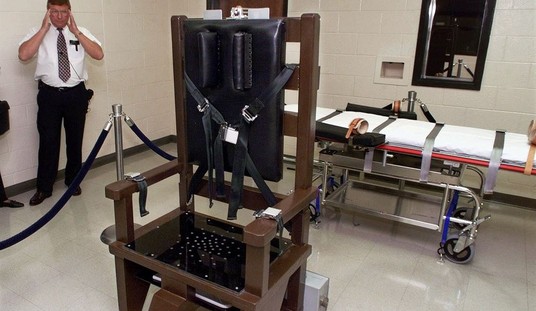Let she who has not spun a bottle cast the first keg tap. California state assembly member Cristina Garcia tried to ride the #MeToo bandwagon to a national spotlight — until a former aide and an anonymous lobbyist came forward to accuse her of alcohol-driven sexual harassment. Garcia took a “voluntary” unpaid leave of absence after those allegations emerged, but a new report from Politico suggests that Garcia’s problems with harassment and alcohol go deeper than first thought.
For instance, what’s up with the beer tap in her office?
The industry lobbyist said he was surprised last year when, during a late-morning policy meeting in Garcia’s Capitol office, the assemblywoman poured beer from a kegerator — a refrigerator with a beer tap on top — located in her office.
She offered the brew in red Solo cups to the group of lobbyists, even though it was “sometime between 11 a.m. and noon … a little early,’’ the lobbyist said.
Politico’s Carla Marinucci asked Garcia’s spokesperson about the propriety of having a beer tap installed in a lawmaker’s office. The spokesperson cited her work on the Assembly Rules committee to issue a “no comment” and to refer the question to the speaker’s office. That ought to endear Garcia even further with her colleague.
However, the beer tap is the least of the problems. Marinucci’s new report makes it clear that alcohol-soaked socializing and listening to her sexual conquests were part of the job requirements in her office. When one aide had the temerity to question whether that was appropriate for an elected official, the self-proclaimed #MeToo leader and chair of the Assembly Women’s Caucus fired him for insubordination:
[David] Kernick’s complaint, filed Saturday and obtained by POLITICO, charges that his termination by the assemblywoman was a direct result of his resistance to the inappropriate behavior by the lawmaker.
The filing states that Garcia “was seemingly not critical of [Kernick’s] work until after he questioned the appropriateness of her suggestion that after a fundraiser at a whiskey bar that Claimant sit on the floor of her hotel room and play spin the bottle.”
The complaint alleges that “shortly after protesting this sexual harassment,” Garcia disciplined Kernick “with a write up for insubordination.” Two days later, according to the complaint, “Garcia fired him.”
Kernick and three other former Garcia staffers issued a public statement last week detailing their experiences in her office. They noted that they never knew where the money came for all the alcohol in the office, which should raise a separate issue with the Rules Committee, but that Garcia’s other behaviors make a mockery of her #MeToo posturing:
- Ms. Garcia often spoke, if not bragged, about her sexual activity. She would describe various sex acts in uncomfortable detail. She commonly had these conversations in front of staff members. She seemed to like to make her staff uncomfortable with this type of content. In fact, this content did make us uncomfortable.
- Ms. Garcia also spoke of her sexual activities with other elected officials including other members of the Assembly who we will not name in respect for their privacy. She spoke graphically about their sexual activity and stated as fact that they were sexually active in Assembly offices.
- Ms. Garcia said that having sex with other elected officials was a good way of getting information; she claimed that she received a lot of information during post-coital (or, in her words, “after they come”) conversations. …
- Ms. Garcia commonly and pervasively used vulgar language with, to, at and around staff. For example, she frequently used the “C word” while referring to other women
Oh my. That doesn’t sound particularly respectful of women … or of men, either, for that matter. One other complaint could land Garcia in legal trouble, too:
- Sometimes we were asked to perform campaign activities in the Assembly officeincluding fundraising and donation request calls. In addition, there were Assembly staff members that were also campaign staff and they would be on Assembly time but performing campaign activities. There were not strict lines between Assembly resources and campaign resources.
- Ms. Garcia and her senior staff also pressured us, to assist other local and statewide candidates and we were reprimanded if we did not take part. Additionally, some members of the staff were directed to help plan Mayor Crespo’s memorial activities along with other assignments that had no legislative purpose.
Does California have a Hatch Act-style law prohibiting the use of legislative resources for campaign activities? If not, perhaps this might prompt the legislature to pass one, or for good-government groups to force one upon the legislature through a referendum. If such a law already exists, Garcia might need to worry less about keeping her office and worry more about spending time in the clink.
What are we to learn from this? Abusive behavior is not limited to gender, and it’s probably not even driven by it. As Kernick says to Marinucci, “powerful women can act the same way as powerful men.” The issue is the combination of power, character, and a lack of accountability structures in places where those qualities are likely to reach their highest amplitude. This letter expresses the character failings of this particular representative, and the need for better accountability structures to prevent abusive behavior in the future — whether it’s by Democrats or Republicans, men or women.








Join the conversation as a VIP Member